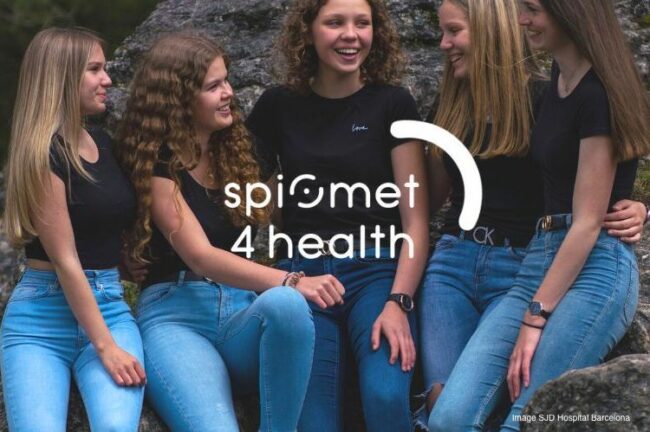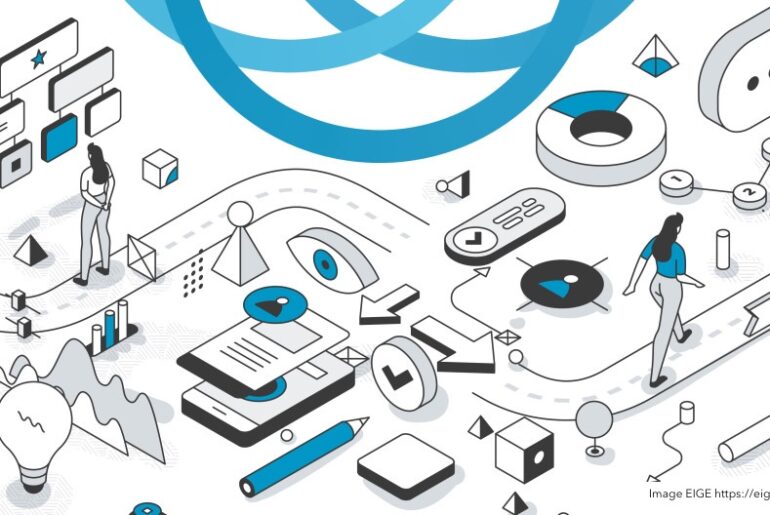In search of a cure for PCOS
The SPIOMET4Health project
30.09.22
MMM is participating in an EU project, SPIOMET4Health, which aims at providing a treatment for Polycystic Ovary Syndrome (PCOS), a leading cause of infertility, while raising awareness about the prevalence of this hormonal disorder among young women.

About Polycystic Ovary Syndrome (PCOS) and its prevalence
Polycystic Ovary Syndrome (PCOS) is the leading cause of fertility problems in women. Indeed, it is negatively affecting the health and quality of life of approximately 110 million women globally in many ways. That’s between 5 and 10% of all women worldwide, and even of their offspring. It is the most common hormonal disorder among women of reproductive age. Women with PCOS may have a range of symptoms such as infrequent or prolonged menstrual periods, and excessive levels of male hormones (androgens); these are usually present in women in small amounts and may result in excessive body hair (hirsutism) and acne and also contribute to abnormal body fat distribution. PCOS is also associated with lifelong disorders such as type 2 Diabetes, premature vascular ageing, premenopausal cancer and a higher risk of premature birth in pregnancy.
These are symptoms that not only affect physical health but can have knock on effects on women’s confidence and self-esteem. Studies show that approximately 40% of women with PCOS are known to experience depression or anxiety. This emotional impact is also reinforced by the potential sub-fertility that PCOS can cause. PCOS not only has repercussions on the patient, but it also incurs a cost on society: it is estimated that its annual cost is approximately €23 billion in the European health sector. Currently, there is no approved treatment for Polycystic Ovary Syndrome (PCOS) in adolescent girls and young women
The EU project SPIOMET4HEALTH and MMM’s role

Therefore, the European Union’s Horizon 2020 research and innovation program is funding the SPIOMET4HEALTH project that aims to provide a new treatment for adolescent girls and young adult women with polycystic ovary syndrome.
MMM is participating in the European project as a communication partner, but also to alert politicians to the urgency of the situation. We hope that Europe can offer more funds to help young women suffering from this syndrome.
Our role is to spread the word about the importance of adolescent girls and young adult women aged 12 to 24, who suffer from PCOS, to come forward and participate in the project’s phase II clinical trial in different centers in Europe. The aim being to test whether this new therapeutic approach has the potential to improve the health-related quality of life for millions of women with PCOS.
Our goal?
Find a new treatment for SOPK: SPIOMET in a single tablet (SPI, 50 mg + PIO, 7.5 mg + MET, 850 mg) administered daily, together with specific lifestyle measures, aims to normalize ovulation and endocrine-metabolic status. SPIOMET4HEALTH will also impinge on the underlying mechanisms responsible for the development of PCOS and its results will serve as a basis for a Phase III clinical trial that will enable the exploitation of this novel approach throughout Europe.
This new treatment has the potential to become a preconception strategy that will likely be followed by spontaneous ovulation or conception, normal pregnancies, and a healthier next generation.
Envisioning care as a common thread to global crises
29.07.24
UN New York - Our virtual HLPF side-event brought together experts to shed light on how the various global crises we face (in particular climate change and other environmental crises,
We call for multi-stakeholder approach to recognise and support unpaid care work
21.07.24
UN New York - Participating in the meeting of the UN Economic and Social Council (ECOSOC) on care and support systems, MMM reaffirmed the principle of co-responsibility, which should underpin
The New EU Gender Equality Roadmap : A Call for Inclusion of Mothers
04.03.25
The European Commission’s initiative on a new Gender Equality Roadmap post-2025, marks a significant step forward in addressing gender disparities across the European Union. Make Mothers Matter (MMM








